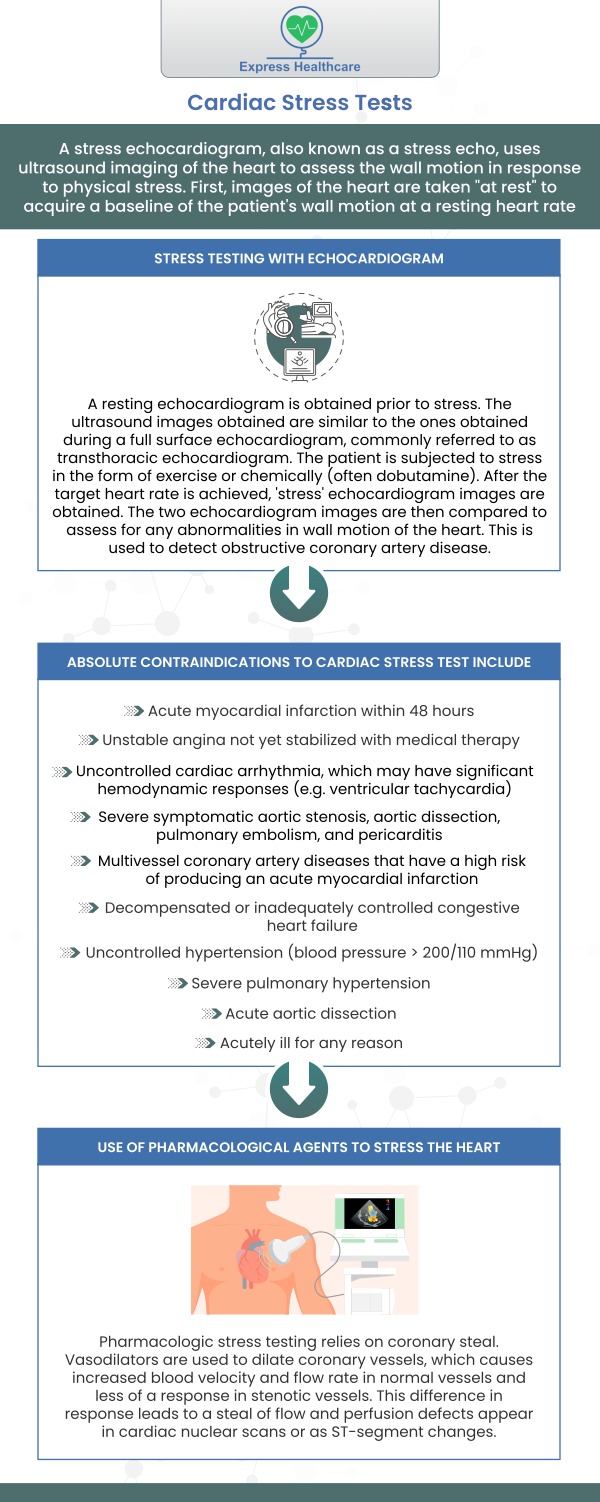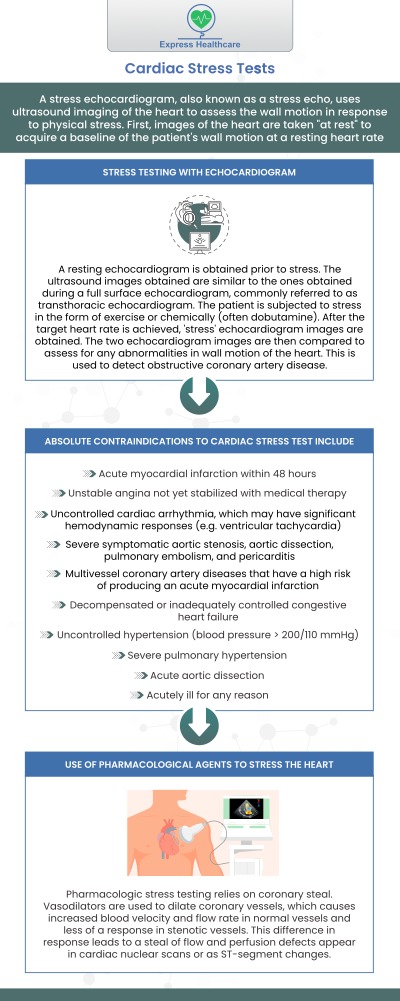Stress Testing Specialist in College Park, MD
A stress test is performed to evaluate heart function and blood flow. It comprises exercising or taking medicines that simulate the effects of exercise. A stress test may be required for a variety of reasons, including assessing coronary artery disease symptoms and monitoring treatments. If you are experiencing heart problems and your doctor has ordered you a stress test, visit Express Healthcare today. For more information, contact us or schedule an appointment online. We are conveniently located at 4701 Melbourne Place College Park, MD 20740.





Additional Services You May Need
▸ EKG, Stress Tests, Cardiology
▸ Physical Therapy
▸ Internal Medicine
▸ Urgent Care
▸ Vaccines & Immunizations
▸ On-Site Lab Screening
▸ X-Ray & Imaging
▸ Women’s Health
▸ Occupational Health




